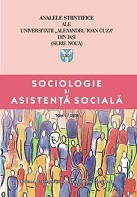RISK PERCEPTION AND SOCIAL CONSEQUENCES. THE LISBON EARTHQUAKE (1755) AND ITS REFLECTION IN LITERARY AND PHILOSOPHICAL SOURCES
RISK PERCEPTION AND SOCIAL CONSEQUENCES. THE LISBON EARTHQUAKE (1755) AND ITS REFLECTION IN LITERARY AND PHILOSOPHICAL SOURCES
Author(s): Elena Velescu, Roxana MihalacheSubject(s): Social Sciences, Sociology
Published by: Editura Universităţii »Alexandru Ioan Cuza« din Iaşi
Keywords: natural hazard; risk society; risk perception; Enlightenment period; conception of nature; cultural history;
Summary/Abstract: The discourse on the disaster from the mid-eighteenth century could provide us with elements of understanding about the society that produced it, placing it in the field of the history of representations since the earthquake of Lisbon in 1755 allowed the analysis of naturalists from a scientific point of view and provided the basis for a conception of scientific nature, according to which man's intervention in nature was considered legitimate. Thus, the perception of natural disasters allows for a gradual change in the position of consciousness and the change in values of man, who renounces his passivity towards nature in modern times and begins, through technical-scientific mastery, to consider himself competent and empowered in the management of risks and natural hazards. The literary account of disasters takes on a critical role, thematizing nature as a social catastrophe, and the writings of Voltaire, Rousseau, or Heinrich von Kleist, referring to the Lisbon earthquake, demonstrate the secularisation of disaster, opening the way to the concepts of risk and responsibility.
- Issue Year: 16/2023
- Issue No: 1
- Page Range: 173-183
- Page Count: 11
- Language: English

